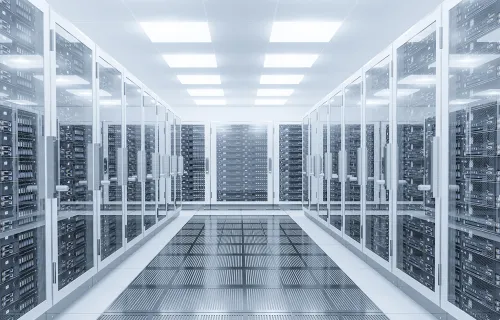With leadership comes responsibility, none more so than in the case of Net Zero. The responsibility of leaders is to simplify sustainable pathways and make these more accessible to the businesses and communities where we work and live.
There is a growing momentum of organisations, cities and countries committing to the 'Race to Zero' campaign. Indeed, here at CGI, we have made our commitments, as shown in Pippa’s recently published blogNet Zero - we should do this, and we can do this – so why wouldn’t we? and our involvement in the Business Leaders Group for COP26 in Glasgow. However, this isn't an ordinary race. There will be those who cross the line first, but it's a race we need everyone to enter, and importantly finish.
In the case of Net Zero, leadership is not just about getting your own house in order. It's about using size and scale to influence peers, share experience, engage supply chains and provide transparency to customers enabling them to make informed decisions. It's a collective ambition, where technology, co-creation and proactive engagement between partners and competitors will need to be embraced. Collectively delivering a solution to slow the advance of climate change sits outside the traditional boundaries of competition; it's a common language to drive collaboration.
'…the two of us will not agree on everything, but we recognise that we are united by a common cause: that in facing the threat of climate change, there is more that unites us than divides us.'
Justin Welby, Archbishop of Canterbury and Lord Browne, former CEO of BP
Engaging small and medium enterprise (SME)
A critical part of the Net Zero journey will be the engagement of SMEs, the vibrant ecosystem that provides the backbone of goods and services across the globe, particularly in developing countries.
SMEs account for the majority of businesses worldwide and are important contributors to job creation and global economic development. They represent 90% of businesses and more than 50% of employment worldwide. Formal SMEs contribute up to 40% of national income (GDP) in emerging economies. These numbers are significantly higher when informal SMEs are included.
A recent BBC News article highlighted some of the challenges faced by UK SMEs in delivering the government's call to arms for small businesses to lead the charge and pledge to reach Net Zero by 2050 or sooner. Lack of finance, time, not knowing where to start, too much jargon and generic advice are all cited as barriers to SME Net Zero progression.
The survey carried out by the British Chambers of Commerce in August 2020 Business Attitudes to Net Zero suggested two-thirds of businesses don't see Net Zero targets as a high priority post-pandemic—despite almost half stating their customers are worried about the environment.
Compared to the first survey that was run pre-pandemic in February 2020, the August survey showed fewer firms were either
Keeping it simple
The discussion around climate change has driven a rapid expansion and equally fragmentation of global ESG ratings and benchmarks. The World Business Council for Sustainable Development (WBCSD) has reported approximately 600 ratings and benchmarks requesting over 2,000 individual ESG reporting indicators.
It’s easy therefore to appreciate how SMEs can find the world of sustainability jargon confusing and a barrier to starting their own Net Zero journey.
In the first instance, It's about establishing a baseline and understanding of your operational carbon and societal impact. It's then about developing a compelling strategy, understood by your organisation and relevant to your customers and stakeholders. Finally, it is about developing an actionable roadmap with KPIs and ambitious but achievable objectives, in time aligning these to Science Based Targets (SBTi's).
The most important thing for SMEs is to make a start, start small and keep it simple.
It's not too late
The most recent Intergovernmental Panel on Climate Change (IPCC) update report suggests climate change is widespread, rapid and intensifying but that human actions still have the potential to determine the future course of climate change.
The advancement of science and technology have given us the tools we need to lead impactful change. These now need to be delivered in scale and at pace for everyone.
So, whether as partners, mentors, advisors or educating and sharing Net Zero ambition through our supply chains, it's a journey we must take together.
Sustainability advisory
We work with clients to develop and support their Net Zero ambition. From helping organisations take the first steps as a responsible business, to delivering smart cities and connected communities across the globe.
We deliver innovative partnerships such as CGI and arbnco join forces to improve SME energy efficiency as part of the UK Government's Boosting Access for SMEs to Energy Efficiency (BASEE) project.
And we are looking for new partners to join our Digital Climate Technology Partner Ecosystem
Contact me if you are interested in an informal discussion on how CGI can support the next stage of your organisation's Net Zero journey.





